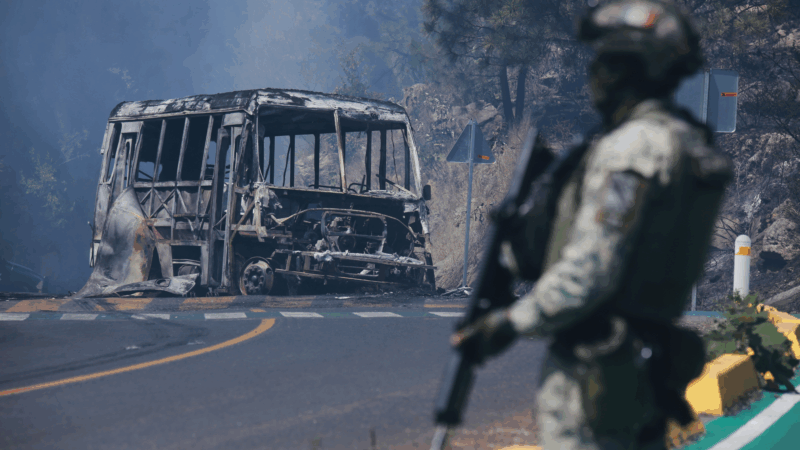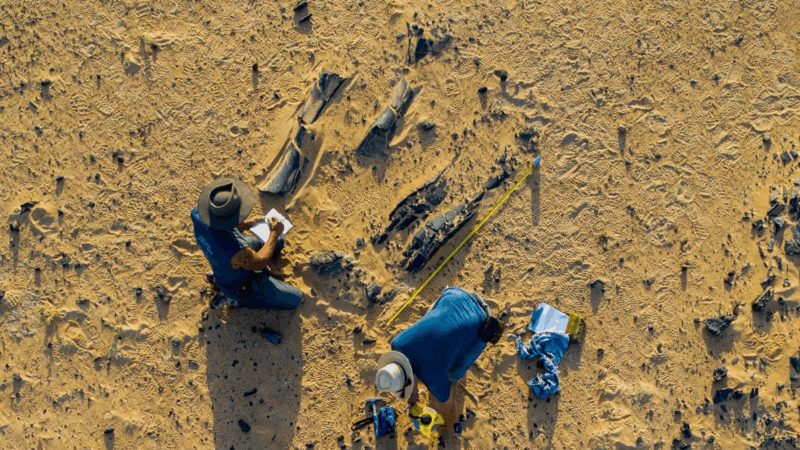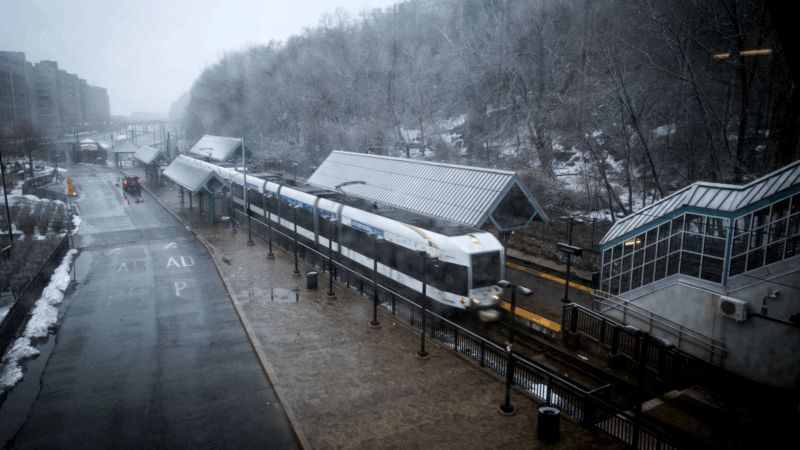Trump issues a Columbus Day proclamation to ‘reclaim’ the explorer’s legacy
President Trump has signed a proclamation declaring Monday to be Columbus Day, in an effort to “reclaim” what he called the famed explorer’s “extraordinary legacy of faith, courage, perseverance, and virtue.”
The proclamation comes after Trump said in a social media post in April that, to
bring the holiday “back from the ashes,” he would reinstate “Columbus Day under the same rules, dates, and locations, as it has had for all of the many decades before!”
In recent years, many people have instead celebrated Indigenous Peoples Day to recognize Native land and acknowledge the contributions Native Americans have made to the country.
Critics and advocates like Kerri Malloy, a professor of Native American and Indigenous Studies at San José State University, have challenged Columbus Day and Columbus’ legacy. He says Columbus‘ arrival to the Americas “triggered a mass genocide of Indigenous people throughout the Western hemisphere,” which included deadly diseases being spread among them, their land being stolen and being forced into Christianity.
Thursday’s proclamation does not mention Indigenous Peoples Day, but it accuses “left-wing arsonists” of trying to “destroy [Columbus’] name and dishonor his memory.”
Columbus Day is one of 12 federally recognized holidays in 2025. According to the Pew Research Center, 30 states and three U.S. territories recognize Columbus Day in some way, while 17 states and D.C. commemorate Indigenous people on that day. Included in those tallies are the several states that recognize both. In 2021, Joe Biden became the first president to officially recognize Indigenous Peoples Day on the same date as Columbus Day.
Christopher Columbus was born in Italy in 1451 and sailed to what he thought would be Asia in 1492, with support from the Spanish monarchy. He instead arrived in what is now the Bahamas. He would make three more voyages to South America, Central America and the Caribbean before his death, but never made it to what is now the U.S., according to Britannica.
President Benjamin Harrison first commemorated Columbus Day in 1892, a year after anti-Italian rhetoric culminated in the murder of 11 Italian immigrants in New Orleans by a lynch mob. The attack put a strain on the relationship between Italy and the U.S., and the holiday was an olive branch. President Franklin Roosevelt proclaimed it a federal holiday in 1934.
After signing the document on Thursday, Trump said, “We’re back, Italians. We love the Italians.”
Rep. Elise Stefanik, a New York Republican, lauded his proclamation, writing on X, “New Yorkers [love] Columbus Day!”
Rep. Mike Lawler, a New York Republican and Italian American, said on X, “Viva Italia! As a proud Italian-American, I fully support protecting Columbus Day and celebrating the rich history and contributions of Italian-Americans.”
Others weren’t as enthused.
“The proclamation reiterates the American fantasy of Columbus’ voyage, as solely a story of discovery and exploration, versus what it really was about — commerce and the exploitation of resources,” said Malloy, the San José State professor. “You can’t tell a story without telling both sides of it.”
Still, the president is encouraging Americans to celebrate Columbus in some way on the holiday, and display the U.S. flag on all public buildings.
“This is the president trolling people of color, underrepresented minorities that tend not to vote for his party or candidacy,” said Matthew Fletcher, director of the Indigenous Law and Policy Center at Michigan State University. “My sense is there’s not a massive groundswell in favor of Columbus Day anymore, except, possibly, the Italian Americans.”
Fletcher said that regardless of what the day is called, Indigenous people will still celebrate and be celebrated.
“It’s local, it’s tribal, it’s statewide in a lot of places, and it’s still going to be a legitimate thing, and people take it seriously,” he said.
Mexico fears more violence after army kills leader of powerful Jalisco cartel
School was canceled in several Mexican states and local and foreign governments alike warned their citizens to stay inside following the army's killing of the leader of the Jalisco New Generation Cartel, Nemesio Rubén Oseguera Cervantes, "El Mencho," and the violence it spurred
Newly discovered dinosaur species was a fish-eater with a huge horn
The semi-aquatic dinosaur, Spinosaurus mirabilis, was discovered by an international team of scientists working in Niger.
Reporters’ notebook: The Olympics closing ceremony is way more fun than you’d think
Olympics opening ceremonies tend to get more love than their closing counterparts. But a pair of NPR reporters who watched both in Italy left with a newfound appreciation for the latter.
Northeast readies for a major winter storm, with blizzard warnings in effect
New Jersey through Massachusetts could see 2 feet of snow. New York City's mayor said the city had not "seen a storm like this in a decade."
Mexican army kills leader of Jalisco New Generation Cartel, official says
The Mexican army killed the leader of the powerful Jalisco New Generation Cartel, Nemesio Rubén Oseguera Cervantes, "El Mencho," in an operation Sunday, a federal official said.
Ukraine’s combat amputees cling to hope as a weapon of war
Along with a growing number of war-wounded amputees, Mykhailo Varvarych and Iryna Botvynska are navigating an altered destiny after Varvarych lost both his legs during the Russian invasion.







